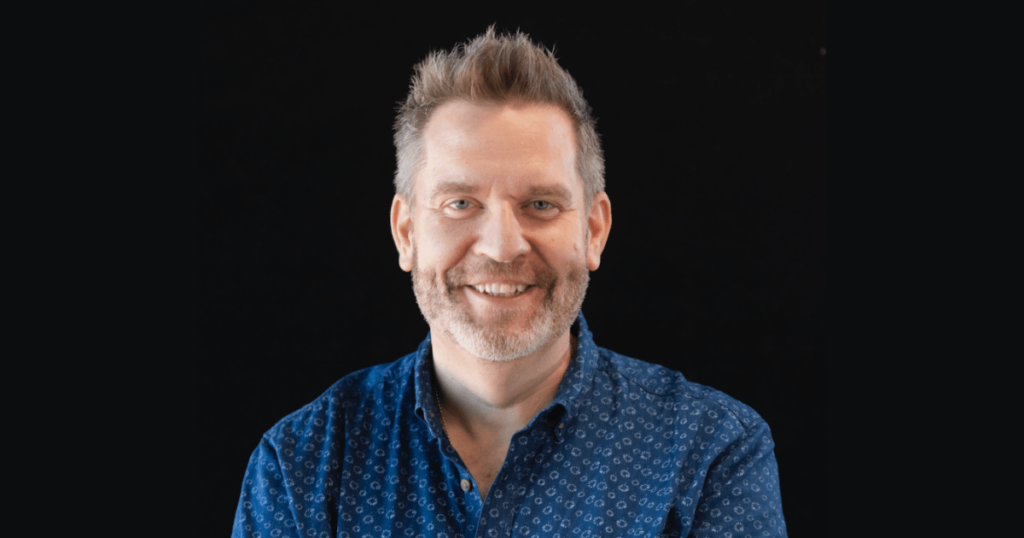Phil Ore, co-CEO and chief mentor at 25eight. Source: Provided.
Startups are born with grand plans in mind, but founders soon realize that the road to success is never easy. “Someone once said it’s like a marathon, where you sprint the whole way, but I think of it more like Jumanji: you land on a map, you find the treasure at the end, but make sure you don’t get eaten along the way,” says Phil Ole, co-CEO and chief mentor at 25eight.
At 25eight, Ole brings his extensive experience (including roles in global technology, marketing, and customer experience at Nokia) to helping startups on their journey. For early-stage startups in particular, this means pitching – a short but crucial opportunity to explain the essence of their business and ideally attract funding, attention, or support. Because pitching can make or break a startup’s future success, access to mentors like Ole and Dell For Startups, a program from Dell Technologies that helps early-stage startups scale, is crucial.
Mastering the Art of the Pitch
Through 25eight, Ole coaches founders, mentoring them in the ways of pitching. While the pitches can be formal, like the SXSW Sydney Pitch competition, Ole says founders should be prepared to pitch anytime, anywhere. “As startups, we pitch every minute of every day,” he says. “We pitch for funding, grants, and investments, we pitch to people who can build our hardware and software. We pitch to agencies who can help us build our website and brand, we pitch to partners who might be our go-to-market channels, and of course we pitch to customers.”
Ole’s presentation strategy is based on the 25eight Six Pillars Framework: “It’s about talking about your purpose – why you exist, what problem exists, how you solve it, your expertise, why your customer wants it, and what the call to action is,” Ole says.But at the heart of every successful presentation, Ole says there’s one key message:
“The most important thing about a compelling pitch is having a human-centric story,” says Ole. To understand its real-world importance, let’s look at the example of Lisa Milani and her startup, Nanocube Health, which is working to treat pancreatic cancer with nanorobots. With Ole’s guidance (an opportunity given to all 20 finalists), Milani told the story of former AFL footballer Paul Dear, who died of pancreatic cancer in 2022, in her 2023 SXSW Sydney pitch. “Sadly, Paul has passed away, but the impact of what Lisa and Nanocube Health can do is immeasurable.”
Along with Ole, Milani was able to receive startup guidance from Dell for Startups and received support from Sydney to presenting at SXSW Austin and beyond, proving the importance of being involved in a global startup community. “It was great to partner with Lisa and Nanocube Health after the event,” said William Hasko, Director of Small Business Marketing at Dell Technologies. “We helped document this journey and look forward to continuing to support Nanocube and ensure technology is the catalyst for their continued success.”
Avoid common pitching pitfalls
Like anything in business, pitching doesn’t depend on just one technique. Ole says that in addition to the all-important human story, a successful pitch must rely on evidence to support the overall concept. “The more data and qualitative and quantitative research you can incorporate into your pitch, the fewer assumptions you can make,” he says. “What is the problem, how big is the problem, how do you solve it, and what is the impact of your solution?”
But Ole has seen plenty of pitches that don’t work, and he has a word of warning for startup founders: don’t rely on one pitch. “One pitch doesn’t fit all,” Ole says. “Think about who is in front of you and what their pain points are, because even if they’re not a potential customer, they might know an investor who would say, ‘Wow, this is great. Let me talk.'”
Ole also says that founders can sometimes make the mistake of thinking they have to know everything and ignoring areas they’re not familiar with. Instead, there’s nothing wrong with acknowledging gaps in your knowledge. “Even in a pitch competition, you’re not expected to know everything,” he says. “If the judges ask a question and you don’t know the answer, say, ‘That’s a really good question. I’ll look into it.'”
Ultimately, whether a startup chooses to work with 25eight, Dell For Startups, or another partner, Ore says a good pitch — and a startup’s success — comes from getting out and engaging with the startup community. “Good outcomes for entrepreneurs come from having a plan of action, and luck comes from reaching out,” he says. “And Dell can help in that regard, because we have the scale and connections that most startups don’t have.”

